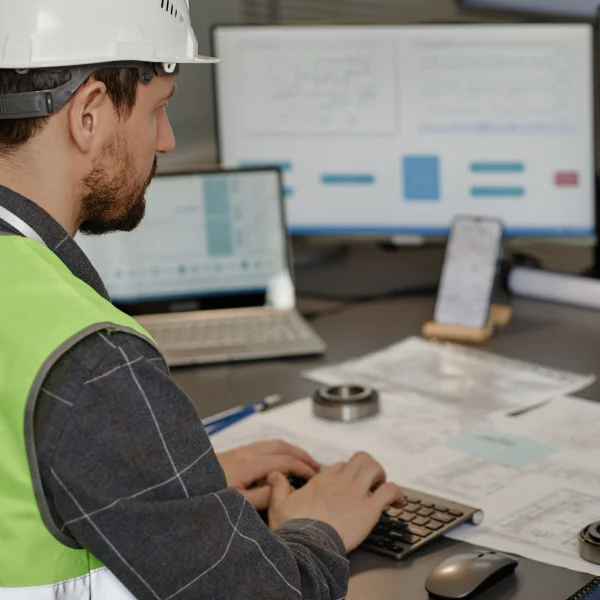
A construction project is a complex process that involves many stakeholders and requires careful planning. Whether it’s a residential renovation, a commercial build, or an industrial development, effective construction project management is essential to ensure the project’s success.
It’s not just about meeting deadlines and budgets, but also about ensuring the work meets the highest standards of quality.
Why is construction project management essential?
A construction project goes through multiple stages, from design to execution. Each phase requires precise coordination to ensure everything runs smoothly and efficiently. Construction project management helps plan, organize, and control every step to avoid costly errors or delays.
The main reasons why effective management is essential include:
- Meeting deadlines: An experienced project manager knows how to allocate resources and handle unexpected issues to keep the project on track.
- Cost control: Staying within budget is a critical aspect of any construction project. Poor management can lead to major cost overruns.
- Work quality: A poorly managed project may result in construction errors that compromise the durability and safety of the building.
- Clear communication: Project management ensures efficient communication among all parties involved—architects, engineers, subcontractors, and the client.
The role of the construction project manager

The project manager plays a key role in the success of any construction project. Their job is to oversee every stage of the project and ensure goals are met on time and within budget. Here are some of their main responsibilities:
- Planning: The project manager develops a detailed plan that includes a construction schedule, estimated costs, necessary resources, and potential risks.
- Coordination: They coordinate the work of various stakeholders and subcontractors to ensure tasks are completed at the right time.
- Monitoring: The manager tracks project progress to spot issues early and implement corrective actions.
- Risk management: Identifying and minimizing risks is a crucial part of their job. This includes managing delays caused by weather, design errors, or supply chain issues.
Key stages of construction project management
A construction project goes through several critical phases, and managing each phase properly is vital for overall success. The key stages include:
- Design and planning: During this phase, the project manager collaborates with the architect, engineer, and client to define objectives and set a detailed timeline.
- Tendering and contractor selection: The project manager handles the bidding process and helps choose the right contractors and subcontractors.
- Execution: During construction, the project manager ensures everything follows the plan, respecting both budget and timeline.
- Quality control and inspections: The manager ensures that all work meets quality standards and that no mistakes compromise safety or functionality.
- Completion and handover: Finally, the project manager oversees the final stage, including inspections and finishing touches before handing over the keys to the client.
The importance of construction management

Complex construction projects—such as large commercial or industrial buildings—require even more rigorous construction management. In these cases, project management involves coordinating multiple teams, managing large budgets, and meeting tight deadlines.
To manage such complexity, advanced tools and techniques like project management software are essential to track progress, allocate resources efficiently, and anticipate issues.
How to optimize your project management?
To ensure your construction project is a success, it’s essential to adopt a structured and professional management approach. Here are a few tips to optimize your project management:
- Plan every stage carefully: Solid planning is key. Make sure each phase is clearly defined and allow flexibility to deal with unexpected issues.
- Communicate effectively: Strong communication between all stakeholders is crucial to avoid mistakes and misunderstandings.
- Track progress regularly: Continuous monitoring helps identify problems early and resolve them before they escalate.
- Anticipate risks: Be proactive in managing risks, whether related to weather delays or last-minute changes to the plans.
In short, construction project management is crucial to ensure the success of your project—whether it’s a small renovation or a major commercial or industrial build. A skilled project manager can make all the difference by overseeing every aspect of the work from start to finish.
If you’re looking to complete a stress-free construction project, don’t hesitate to hire a qualified project manager. With effective management, your project will be delivered on time, on budget, and to the quality standards you expect.